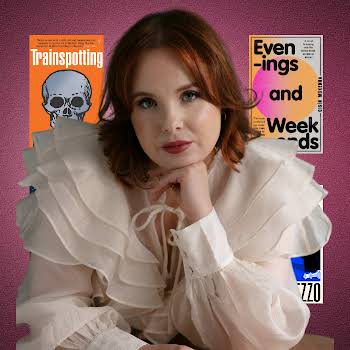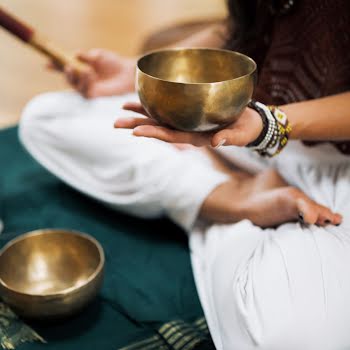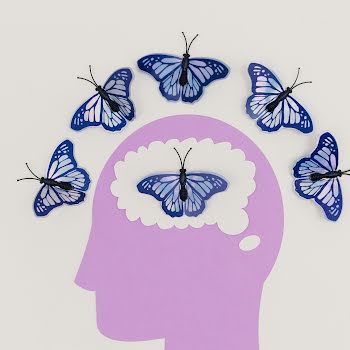
By Niamh Ennis
24th Oct 2022
24th Oct 2022
Wake, scroll, observe, compare, feel less and repeat several times daily.
While we might frown upon this, we know that it’s true and also that we are all guilty of doing it. Let’s face it, it has become our current reality in this social media age. Nothing has the power to dishearten us more than when we are repeatedly presented with examples of how others are delivering their best. Why? Because what we hear is that we aren’t.
We see other people shining bright and we feel dark and dull. We see others achieve dizzy heights of success and we feel a little more useless and that no matter what we do it will never be enough. Ironically, when these are ‘celebrities’, that distance provides us with a protective buffer. We simply can’t relate. But when they are people we know, people just like us, it has to potential to really grind us down.
We really want to be supportive. We want to be the cheerleaders. And yes, we might make all the right noises and congratulate them on their success, but to compensate, we berate ourselves for not working hard enough, being talented enough, rich enough, slim enough, popular enough – you get the idea!
What we are feeling is plain envy but instead of acknowledging it, as that, we blame ourselves for not having what they have. It becomes our fault and we alone are to blame. When we engage in this kind of behaviour, the long-term effects can in turn be soul-destroying and negative and serve no real purpose for us. But it doesn’t have to be this way.
What if you committed to believing that those times when you compare your story to someone else’s, provide you with the fuel and ammunition to do more, to be more? What if instead of you defaulting to despair that it delivered you with greater clarity on what exactly it is you wanted for yourself and your life? What if you asked yourself each time you feel it happening if this is something you truly want for yourself? Does it feel right for you? Are these people or things you wish to model your life on?
THE GOOD NEWS: NOT ALL ACTS OF COMPARISON ARE BAD FOR YOU.
Comparison enables you to develop a reference point for where you are in life, and most notably where it is you want to be. It grants you permission to take stock of and measure yourself against your friends, colleagues, siblings and anyone you look up to admire. It gives you an indication of how you are performing, which is important information when it comes to self-improvement. Without the ability to compare yourself, you have no way of knowing whether you have progressed, advanced or evolved at all.
If you see someone achieve success in their business, learn what steps they followed, and what qualifications they took. Study their progress and see how you can adapt that to your business. Harnessed correctly, this kind of comparison really has the potential to power you forward. Reach out to them, and see if you can ask them for more information on the steps they took – you may be surprised how many people are willing to share their success stories.
HOW TO CHANGE YOUR STORY OF COMPARISON
Accept that comparisons are natural, but that they are also a double-edged sword. While they can torture us deeply, they can at the same time, when used properly, be an incredible source of inspiration. Everything begins at the point of awareness. Awareness of who, or what, you’re comparing yourself to, when you do it, what causes you to feel it and then what to do next with that information. Try filling your social media feed with more people that inspire you and who you look up to. Who makes you feel joyful? Who moves you? Focus on expanding what’s within your power to expand. Remember that everyone’s circumstances differ vastly. Treat yourself compassionately. You may be at a different stage in your life to those you admire or you may have access to different resources so look for those that are within your reach right now.
BE YOU. EVERYONE ELSE IS TAKEN.
If you aim to become just like everyone else, trust me, you will be miserable when you get there. If, instead, you stay focused and aim to do everything you can to chase what it is you want, when you have it, you will feel so happy and so proud of yourself that you focused on your desires and nobody else’s.
We are constantly advised of the pitfalls of comparison and are told not to compare ourselves to others, but perhaps that’s not always the best advice. I believe that there’s a skill with how we use comparisons that don’t always leave us feeling bitter. It can be inspiring to see other people’s success. It can actually be educational and informative.
WHY YOU COMPARE
Comparisons are something that we all engage in and, on their own, aren’t inherently bad. You compare your current situation with where it is you came from, you compare the person you are now with how you used to be, you compare yourselves with others in your peers and you compare your knowledge and abilities with others in the same field of business as you. All of these are good things. Comparisons are in fact a normal part of your everyday behaviour and they can serve to keep you focused on improving what you do and how you show up in the world. When you compare yourself to others, you receive valuable information about what it is you want and where you want to be and when you can see what others are capable of achieving it gives you the evidence you need that you too can have that. It shows you it’s possible. Once you are absolutely sure that it’s what you want for yourself!
Personally, I’ve always loved American actress, singer and dancer Judy Garland’s take on this, when she said “Always be a first-rate version of yourself and not a second-rate version of someone else.”
Niamh Ennis is Ireland’s leading Change & Transformation Coach and author of GET UNSTUCK who through her private practice, writings, programmes, workshops and podcast has inspired, activated and helped thousands of people to make significant changes in their lives. She is an accredited Personal, Leadership & Executive Coach and the Lead Coach in the IMAGE Business Club. Follow her on Instagram @1niamhennis. GET UNSTUCK is available now for pre-order and will be released nationwide on November 11.
Photography by Pexels.























